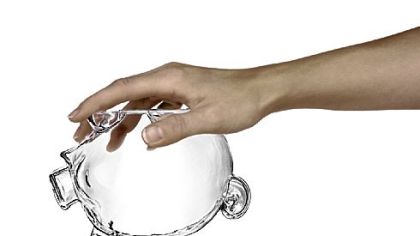June 15, 2012 12:10 am
By Tim Grant?/?Pittsburgh Post-Gazette
Consumers are still struggling to repay daunting amounts of debt that piled up during those times when their incomes did not cover the cost of living. While loan balances do appear to be going down, it may be at the expense of many Americans being able to save for future needs.
In a recent University of Michigan Institute for Social Research report, analysts found that at least one out of five families in this country owe more on credit cards, medical bills and other forms of unsecured debt than they have available in savings or other liquid assets.
Perhaps even more disturbing, the report revealed the number of families with no savings in the bank was up to 23.4 percent at the end of 2011, compared to 18.5 percent in 2009, an indication that consumers' personal finances are getting worse even as the economy is on the mend.
"Going into the super recession of 2008 to 2009, the average household was overextended with debt by historical standards," said P.J. DiNuzzo, president of DiNuzzo Index Advisors in Beaver. "That problem became magnified for a significant number of households and continues to provide a formidable challenge to get back on track.
"You can never go wrong paying off debt," he added. "Families may have significant debt to pay down, but you can't ignore saving while paying it down."
The Michigan report is based on a study of homeownership, debt and financial resources among 8,121 families interviewed both before and after the Great Recession. The families were interviewed as part of the Panel Study of Income Dynamics, which began in 1968 and is the longest running longitudinal household survey in the world.
To say the economic downturn had a negative impact on household balance sheets would be an understatement. But data from this and other economic studies have made it clear that more Americans need a plan to get out of debt and get back on their feet with savings and retirement planning.
Nancy Skeans, a partner at Schneider Downs Wealth Management in the Strip District, said she would advise consumers who have heavy debt loads to focus on paying it down before worrying about building their savings and retirement accounts. Still, both should be high priorities, she said.
"If an individual is loaded down with bad debt, then it probably makes sense to put savings on hold and get rid of the bad debt as quickly as possible," Ms. Skeans said. "But if you always put savings last, you'll get to retirement and realize you don't have any.
"There is such a thing as good debt -- or better yet, appropriate use of debt," she said. "When one uses debt appropriately, one should be able to save for other goals and objectives at the same time."
Her idea of good debt is taking out loans for buying a home, a car and perhaps a college education as long as the payments fit into a balanced budget. Bad debt, on the other hand, is using credit cards -- which carry the highest interest rates -- to purchase items that you cannot otherwise afford.
Although historically low interest rates make it easier to manage high debt levels, some consumers may find themselves in over their heads when interest rates rise and monthly payments increase. The good news is the Federal Reserve has all but guaranteed that rates will not rise until economic growth picks up.
Government data indicates households are trying to reduce debt.
In its latest quarterly report on Household Debt and Credit, the Federal Reserve Bank of New York reported that overall indebtedness in the nation declined to $11.44 trillion, about $100 billion -- or 0.9 percent -- less than in the fourth quarter of 2011.
But efforts to pay off those loans could be short-lived, according to one company that analyzes credit accounts.
Cardhub.com, an Arlington, Va.-based personal finance company, recently released its "Credit Card Debt Study" for the first quarter of 2012. The study found that, despite paying down nearly $36 billion in credit card debt during the first quarter of the year, consumers are actually on track to end 2012 with $50 billion more credit card debt than they began with.
The Cardhub.com report points out that a big debt decrease is common for the first quarter of the year given that this is typically when consumers receive annual salary bonuses and tax refunds, and shift their focus to paying off purchases made during the holiday season.
"There are reasons to carry debt," Ms. Skeans said. "Most of us can't run out and buy a house without it. But we don't have to have the biggest house or the nicest car or attend the priciest college."
gift card exchange tj holmes waste management two fat ladies dennys kindle fire glen davis

No comments:
Post a Comment
Note: Only a member of this blog may post a comment.